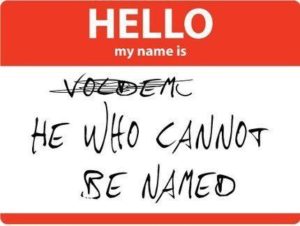A name is not a person, nor is it simply a reference to that person; it is a description that influences behavior. Michel Foucault stated that “one cannot turn a proper name into a pure and simple reference. It has other than indicative functions; more than a gesture, a finger pointed at someone, it is the equivalent of a description” (105). If a name, rather than being a “reference” is a “description,” we need to ask ourselves what names describe.

